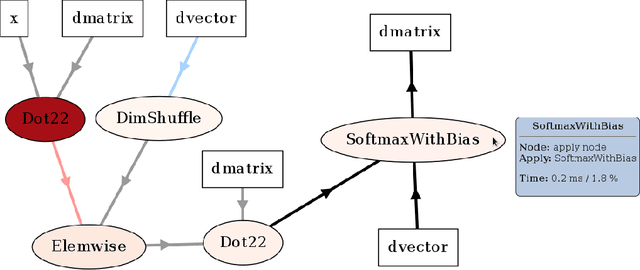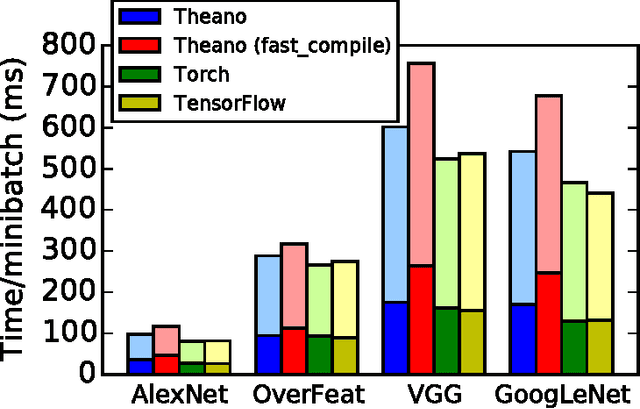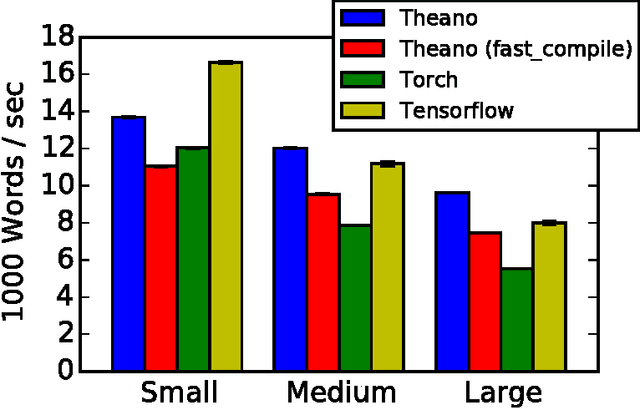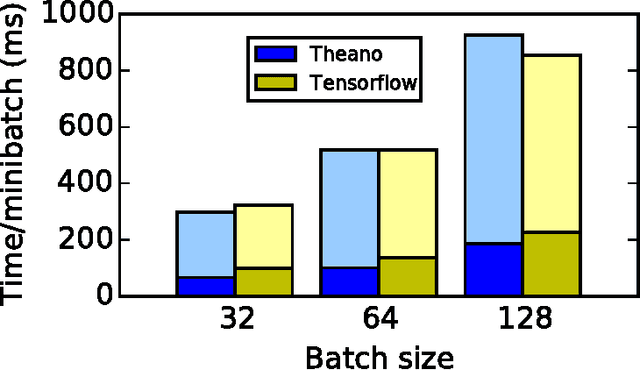Julien Demouth
BLASST: Dynamic BLocked Attention Sparsity via Softmax Thresholding
Dec 12, 2025Abstract:The growing demand for long-context inference capabilities in Large Language Models (LLMs) has intensified the computational and memory bottlenecks inherent to the standard attention mechanism. To address this challenge, we introduce BLASST, a drop-in sparse attention method that dynamically prunes the attention matrix without any pre-computation or proxy scores. Our method uses a fixed threshold and existing information from online softmax to identify negligible attention scores, skipping softmax computation, Value block loading, and the subsequent matrix multiplication. This fits seamlessly into existing FlashAttention kernel designs with negligible latency overhead. The approach is applicable to both prefill and decode stages across all attention variants (MHA, GQA, MQA, and MLA), providing a unified solution for accelerating long-context inference. We develop an automated calibration procedure that reveals a simple inverse relationship between optimal threshold and context length, enabling robust deployment across diverse scenarios. Maintaining high accuracy, we demonstrate a 1.62x speedup for prefill at 74.7% sparsity and a 1.48x speedup for decode at 73.2% sparsity on modern GPUs. Furthermore, we explore sparsity-aware training as a natural extension, showing that models can be trained to be inherently more robust to sparse attention patterns, pushing the accuracy-sparsity frontier even further.
SmoothQuant: Accurate and Efficient Post-Training Quantization for Large Language Models
Nov 28, 2022Abstract:Large language models (LLMs) show excellent performance but are compute- and memory-intensive. Quantization can reduce memory and accelerate inference. However, for LLMs beyond 100 billion parameters, existing methods cannot maintain accuracy or do not run efficiently on hardware. We propose SmoothQuant, a training-free, accuracy-preserving, and general-purpose post-training quantization (PTQ) solution to enable 8-bit weight, 8-bit activation (W8A8) quantization for LLMs that can be implemented efficiently. We observe that systematic outliers appear at fixed activation channels. Based on the fact that weights are easy to quantize while activations are not, SmoothQuant smooths the activation outliers by offline migrating the quantization difficulty from activations to weights with a mathematically equivalent transformation. SmoothQuant enables an INT8 quantization of both weights and activations for all the GEMMs in LLMs, including OPT-175B, BLOOM-176B, and GLM-130B. SmoothQuant has better hardware efficiency than existing techniques using mixed-precision activation quantization or weight-only quantization. We demonstrate up to 1.56x speedup and 2x memory reduction for LLMs with negligible loss in accuracy. Thanks to the hardware-friendly design, we integrate SmoothQuant into FasterTransformer, a state-of-the-art LLM serving framework, and achieve faster inference speed with half the number of GPUs compared to FP16. Our work offers a turn-key solution that reduces hardware costs and democratizes LLMs. Code is available at: https://github.com/mit-han-lab/smoothquant.
Theano: A Python framework for fast computation of mathematical expressions
May 09, 2016



Abstract:Theano is a Python library that allows to define, optimize, and evaluate mathematical expressions involving multi-dimensional arrays efficiently. Since its introduction, it has been one of the most used CPU and GPU mathematical compilers - especially in the machine learning community - and has shown steady performance improvements. Theano is being actively and continuously developed since 2008, multiple frameworks have been built on top of it and it has been used to produce many state-of-the-art machine learning models. The present article is structured as follows. Section I provides an overview of the Theano software and its community. Section II presents the principal features of Theano and how to use them, and compares them with other similar projects. Section III focuses on recently-introduced functionalities and improvements. Section IV compares the performance of Theano against Torch7 and TensorFlow on several machine learning models. Section V discusses current limitations of Theano and potential ways of improving it.
 Add to Chrome
Add to Chrome Add to Firefox
Add to Firefox Add to Edge
Add to Edge